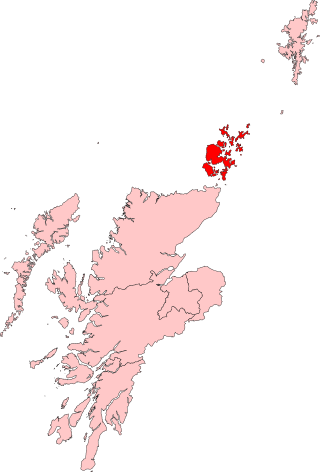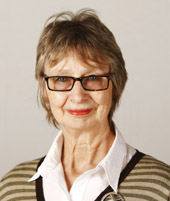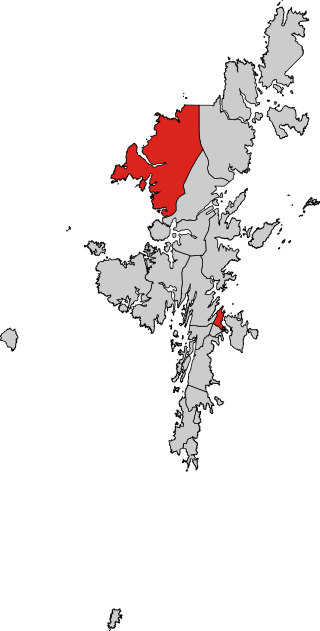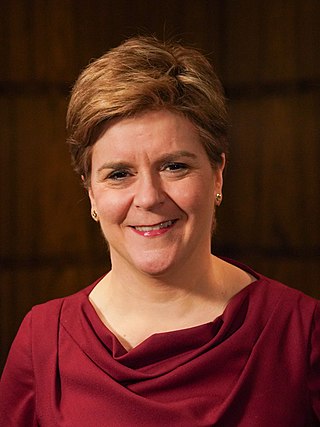
Local government in Scotland comprises thirty-two local authorities, commonly referred to as councils. Each council provides public services, including education, social care, waste management, libraries and planning. Councils receive the majority of their funding from the Scottish Government, but operate independently and are accountable to their local electorates. Councils raise additional income via the Council Tax, a locally variable domestic property tax, and Business rates, a non-domestic property tax.

The Highlands and Islands is an area of Scotland broadly covering the Scottish Highlands, plus Orkney, Shetland, and the Outer Hebrides.

Argyll and Bute is a constituency of the Scottish Parliament (Holyrood) covering most of the council area of Argyll and Bute. It elects one Member of the Scottish Parliament (MSP) by the first past the post method of election. It is also one of eight constituencies in the Highlands and Islands electoral region, which elects seven additional members, in addition to the eight constituency MSPs, to produce a form of proportional representation for the region as a whole.

Orkney is a constituency of the Scottish Parliament (Holyrood) covering the council area of Orkney. It elects one Member of the Scottish Parliament (MSP) by the first past the post method of election. It is also one of eight constituencies in the Highlands and Islands electoral region, which elects seven additional members, in addition to the eight constituency MSPs, to produce a form of proportional representation for the region as a whole.

Shetland is a constituency of the Scottish Parliament (Holyrood) covering the council area of Shetland. It elects one Member of the Scottish Parliament (MSP) by the first past the post method of election. It is also one of eight constituencies in the Highlands and Islands electoral region, which elects seven additional members, in addition to the eight constituency MSPs, to produce a form of proportional representation for the region as a whole.

Scotland has elections to several bodies: the Scottish Parliament, the United Kingdom Parliament, local councils and community councils. Before the United Kingdom left the European Union, Scotland elected members to the European Parliament.

Scottish Westminster constituencies were Scottish constituencies of the House of Commons of the Parliament of Great Britain, normally at the Palace of Westminster, from 1708 to 1801, and have been constituencies of the House of Commons of the Parliament of the United Kingdom, also at Westminster, since 1801. Constituency boundaries have changed on various occasions, and are now subject to both periodical and ad hoc reviews of the Boundary Commission for Scotland.
The 1994 United Kingdom local elections were held on Thursday 5 May 1994. The results showed a continued decline for the governing Conservatives — who were now in their 15th successive year of government at Westminster — with the third-placed party, the Liberal Democrats, as the main beneficiaries.

Regional elections were held in Scotland on 5 May 1994, as part of the Local Government (Scotland) Act 1973. These were the last elections before 29 new mainland unitary authorities, established by the Local Government etc. (Scotland) Act 1994, came into effect. The councils up for election were last contested in 1990 Scottish regional elections, and vote and seat changes are compared to the 1990 results.

Regional elections were held in Scotland on Thursday 6 May 1982, as part of the wider 1982 United Kingdom local elections. Whilst the 1982 elections saw the Conservatives hold up relatively well in England, the Tories did comparatively poorly in Scotland, where their already disadvantageous position worsened. The Conservatives did particularly poorly in Strathclyde, where the Conservative group leader lost his seat.

Jean Urquhart is a Scottish politician. She was formerly a Member of the Scottish Parliament (MSP), first elected in 2011 for the Highlands and Islands region as a Scottish National Party (SNP) member, then continuing to sit as an independent after she left the SNP in October 2012. She had been an SNP councillor at the Highland Council from 2003 to 2011.
The Shetland Movement was a pressure group and political party created in 1978 to advocate for greater autonomy in Shetland. The group called for the creation of a Shetland Assembly or 'Althing' with limited legislative powers and control over direct taxation. The Movement's membership included several key public figures in Shetland, including local author, politician and compiler of the Shetland Dictionary, John Graham and Shetland Islands Council Convener from 1986 to 1994, Edward Thomason.

Elections for the Scottish district councils were held on Tuesday 7 May 1974, for both the new regional and district councils, between the two United Kingdom general elections of February and October in that same year.

Elections to Strathclyde Regional Council were held on Thursday 5 May 1994, on the same day as the eight other Scottish regional elections. This was the final election to the regional council which was abolished in 1995 along with the 19 district councils and replaced by 12 unitary authorities following the implementation of the Local Government etc. (Scotland) Act 1994.
The sixth and last election to Tayside Regional Council was held on 5 May 1994 as part of the wider 1994 Scottish regional elections. The election saw the Scottish National Party overtaking Labour to become the council's largest party, and following the election the SNP formed a minority administration. The Conservatives lost 10 seats and became the third largest party. 8 weeks later, leader of the council Lena Graham resigned 'for personal reasons' and Ewan Dow took over as council leader.

An election to the Shetland Islands Council was held on 3 May 1990 as part of regional elections. Independents maintained control of the 25 seat council. The Shetland Movement gained two seats, bringing their total to seven. The Scottish National Party and Liberal Democrats also ran candidates for the first time.

Elections to the Shetland Islands Council were held on 2 May 1978 as part of Scottish regional elections, with 11 seats uncontested. The election saw 14 new councillors enter the Shetland Islands Council, an unusually large number, in part attributable to the charged political context surrounding the devolution debate of the late 1970s. Several of these incomers consisted of members of the pro-autonomy Shetland Group, later to become the Shetland Movement, and local Scottish National Party branch, registered as independents.

An election to Comhairle nan Eilean Siar was held on 6 May 1999 as part of the wider 1999 Scottish local elections.

The 2022 Scottish local elections were held on 5 May 2022, as part of the 2022 United Kingdom local elections. All 1,226 seats across all 32 Scottish local authorities were up for election and voter turnout was 44.8%.

Elections to the Shetland Islands Council took place on 5 May 2022 on the same day as the other Scottish local government elections. Seven wards will be contested, each ward electing two to four Councillors using the single transferable vote system form of proportional representation, with 23 Councillors elected.














